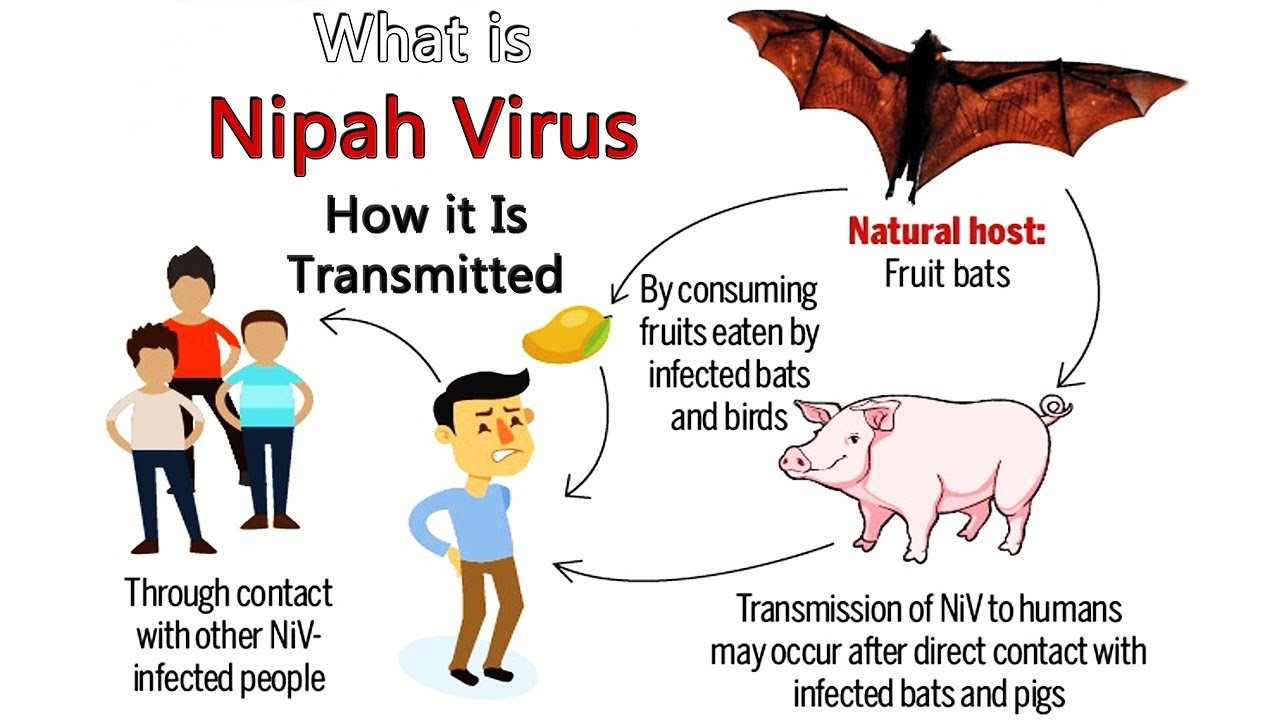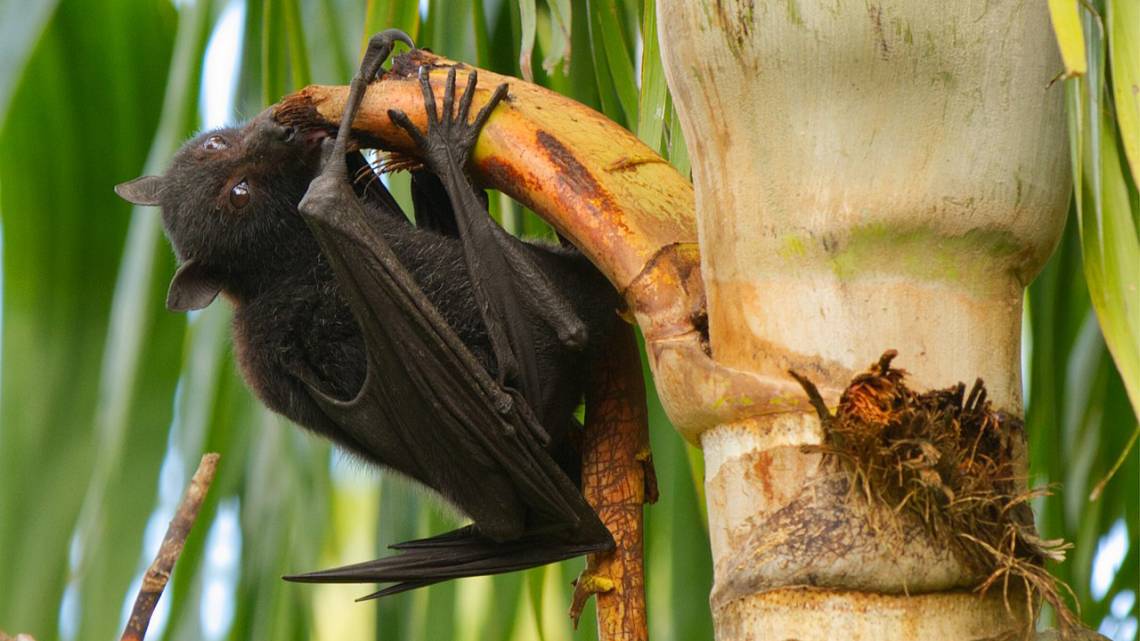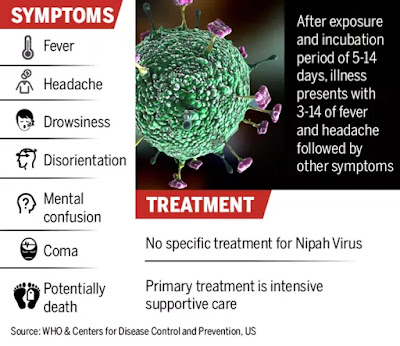Another Pandemic for Kerala ? Here's the "Nipah Virus"!
Another Pandemic for Kerala ?
Here's the "Nipah Virus"!
As the world grapples with the coronavirus pandemic, researchers have found the presence of a different kind of coronavirus -- bat coronavirus (BtCoV) -- in two bat species from Kerala, Himachal Pradesh, Puducherry and Tamil Nadu, according to a first of its study by the Indian Council of Medical Research (ICMR).
The deadly Nipah virus kills nearly 75 per cent of the people it infects, but the circumstances under which the bat species, known as the Indian flying fox, transmits the virus to humans has remained a mystery. Now, a six-year, multidisciplinary study has revealed how the Nipah virus, which claimed the lives of 17 people in Kerala in 2018, spreads among fruit bats -- findings which can help predict when the pathogen may spillover to humans. The Nipah virus is an illness that is transmitted to people from animals, and can also be transmitted through contaminated food or directly from person-to-person. In infected people, it causes a range of illnesses from asymptomatic (subclinical) infection to acute respiratory illness and fatal encephalitis. The virus can also cause severe disease in animals such as pigs, resulting in significant economic losses for farmers.
Although Nipah virus has caused only a few known outbreaks in Asia, it infects a wide range of animals and causes severe disease and death in people.
During the first recognized outbreak in Malaysia, which also affected Singapore, most human infections resulted from direct contact with sick pigs or their contaminated tissues. Transmission is thought to have occurred via unprotected exposure to secretions from the pigs, or unprotected contact with the tissue of a sick animal.

In subsequent outbreaks in Bangladesh and India, consumption of fruits or fruit products (such as raw date palm juice) contaminated with urine or saliva from infected fruit bats was the most likely source of infection.
Human-to-human transmission of Nipah virus has also been reported among family and care givers of infected patients. According to the disease ecologist, it is important to expand surveillance of the bats for the virus to other parts of India.
These bats are well-adapted to living with people, and are common across the Indian subcontinent, "extending all the way up to Nepal."
"In villages we see hundreds to thousands of these bats roosted in hardwood trees. The size and density of these colonies matters," Epstein said.
When there is an outbreak among bats, "the greatest number of them" will be shedding the virus in their feces, urine, and other body fluids, and create an opportunity for NiV to jump to people, Epstein said.
"NiV is one of the many viruses transmitted by bats and is seen to hit the headlines every year, or every other year in countries including India," Ray, a senior scientist at CSIR-IICB, Kolkata, told .

"Nipah viruses continue to jump from bats to people and we can't afford to wait for another pandemic to take actions," Epstein said.
"Those actions don't mean killing bats, but rather protecting our food from contamination with bat droppings," he added.
The Indian government confirmed that a 23-year-old man from Kerala has a Nipah virus infection, and another 86 case contacts are being monitored for the deadly disease, according to the Deccan Chronicle.
Officials said the patient, a college student, is hospitalized and in stable condition. They also said two of the case contacts have fevers, and two nurses who took care of the 23-year-old were also experiencing fevers and sore throats.
Early symptoms of Nipah are similar to the flu, with some cases quickly progressing to seizures and deadly encephalitis. According to the World Health Organization (WHO), Nipah's case-fatality rate is between 45% and 75%.
In May 2018, 17 people in Kerala died from Nipah in an outbreak connected to infected fruit bats found in a family farm's well.
The exposure for the current patient is unknown. Nipah's natural reservoir is the fruit bat, though pigs have been found to be the host in some Southeast Asian outbreaks. The virus can also be transmitted via human-to-human contact.
Kerala Health Minister K K Shailaja said of the new case, "We have confidence that we can face it. We have faced it in Kozhikode last year and contained it."
While this situation is not that important, compared to others, you never know what could spring up.
Read more articles about it here: Nipah: The Very Model of a Pandemic
: Nipah virus: all you need to know
:Nipah Virus: Study suggests more widespread than previously thought
: Fighting a virus, yet again: How controlling the Nipah outbreak helped Kerala to take on COVID-19



thank you!
ReplyDelete